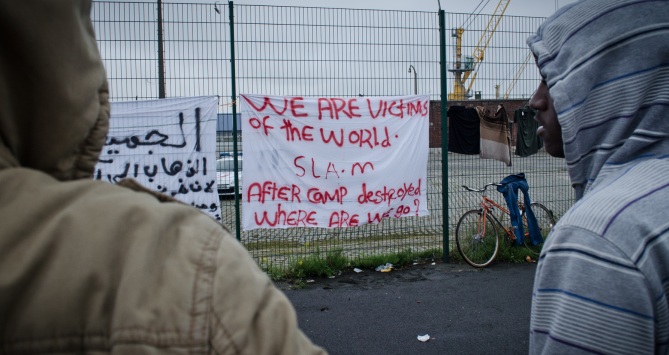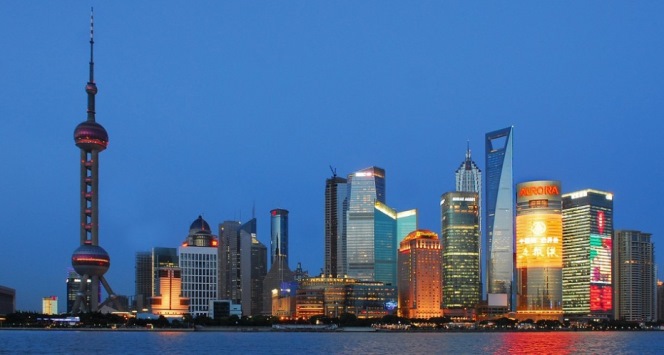In a post originally written for the Africa at LSE blog Alice Evans reviews two books and raises some questions.
The Politics of Inclusive Development: Policy, State Capacity, and Coalition Building. Teichman. Basingstoke, Hampshire: Palgrave Macmillan. 2016.
The Politics of Inclusive Development: Interrogating the Evidence. Sam Hickey, Kunal Sen and Badru Bukenya (eds). Oxford: Oxford University Press. 2015.
The age of ‘best practice’ is over. The time of politics has come. Rather than identify and rollout effective policies, we need to understand the political struggles and coalitions by which socio-economic and political resources come to be redistributed more equitably – across classes, genders, ethnicities and spaces.
These two books are ideal to read in conjunction because they explore the same question through different approaches. Judith A. Teichman’s comparative, historical analysis of Mexico, Indonesia, Chile and South Korea is brilliantly complemented by Sam Hickey et al’s edited collection (comprising thematic chapters on the politics of accumulation, governing natural resources, service delivery, social protection, the rule of law, gender, ethnicity, the politics of aid as well as China in Africa.
 Despite this heterogeneity of authors, disciplines, sub-topics and methodologies, four themes recur throughout both texts: state capacity; elite commitment; coalition-building; and consensus.
Despite this heterogeneity of authors, disciplines, sub-topics and methodologies, four themes recur throughout both texts: state capacity; elite commitment; coalition-building; and consensus.
State capacity is portrayed as fundamental to the politics of recognition, redistribution and accumulation. An effective taxation regime and proactive industrial policy, generating more and better jobs (not just funding vast numbers of microenterprises and papering over poverty with conditional cash transfers) ), are cardinal for Teichman. Kunal Sen likewise underscores the importance of state provision of public goods. In some cases, such as Ghana and Rwanda, these have been facilitated by top-down accountability (see Claire Mcloughlin’s chapter on service delivery).
Importantly, however, state capacity is seldom fostered by non-conflictual, technical tinkerings. To focus on the policy instruments enabling fiscal spending stabilisation in Chile, for example, is to miss the point. Technocratic management of resource rents was not enabled simply by using income from copper exports for countercyclical policy, but rather by the political context from which the policy emerged and endures. It only works because the bureaucracy is competent, publicly motivated and insulated from political interference and raiding, as Armando Barrientos, and Sony Pellissery detail.
 But why might a governing elite choose to redistribute rather than pilfer the national coffers coppers? When do turkeys vote for Christmas?
But why might a governing elite choose to redistribute rather than pilfer the national coffers coppers? When do turkeys vote for Christmas?
Political advantage is one reason. The selected case studies suggest that elites have often embraced pro-poor service delivery and fiscal policy in order to placate rural unrest, enhance state legitimacy, score party political points and thereby secure self-preservation. Ostensibly redistributive policies like rural road-building and expanding primary education can be intensely political, territorial, nation-building projects – as in Peru and Ethiopia. Ghana’s successful cocoa marketing is similarly a function of the underlying political economy: i.e. the relative power of cocoa producers, notpolicy specifics (as McLoughlin details).
Even centre-right candidates may need to champion redistributive social policies in order to shore up political support – as occurred in the run up to Chile’s 2009 election. Having gained power, President Piňera then walked the talk, increasing investment in Chile’s Solidario programme. Governments may also secure re-election by pledging to continue domestically popular redistributive policies, such as Malawi’s Farm Input Subsidy Programme. Although donors initially resisted such state interference, they revised their positions upon recognition of government leadership and domestic support. To restate, the age of best practice is over; the time of politics has come … at least in Malawian agriculture.
But this raises a further question: how does state legitimacy become conditional upon approval from historically socially excluded or adversely incorporated groups? Chickens and eggs abound.
Short answer, from both texts, coalition-building.
In Chile, for instance, widespread and prolonged student protests against prohibitively expensive education not only politicised inequality, but also legitimised state-led redistribution, by cultivating consensus around the imperative for more inclusive development. The strength of this social movement enabled President Bachelet to reduce education costs, raise corporate taxes and reform the labour code(strengthening the power of the unions). Eroding Pinochet’s legacy of grotesque inequality has been a slow, incremental, deeply conflictual but ultimately successful process of state-society engagements.
The ‘Penguin Revolution’ (so called because of their uniforms) was led by middle-class students. As Teichman documents, middle-class groups have also been instrumental to democratisation and redistribution in South Korea: allying with human rights groups and unions, publicly contesting inequalities and being an empathetic bureaucracy concerned about social welfare. She further speculates that middle-class groups would be more likely to support redistributive policies if their own positions were less precarious. [I’m not sure there’s enough evidence to support that point, however – American health insurance being an obvious counter-example (see here and here)].
All fascinating but I found three surprising omissions.
First, the books predominantly focus on governing elites and their reasons for acting. Why so little attention to the other end of the social contract- how marginalised people gain self-esteem; disavow demeaning stereotypes; and foster wider support for equality, including building coalitions with sympathisers among advantaged groups and political elites? There’s no shortage of literature on this (asDavid Hudson and I have found in writing our paper on ideas).
Second, I was surprised that two mighty texts on politics do not differentiate between different kinds of ideas: internalised ideologies and norm perceptions. That is to contrast individuals’ unquestioned acceptance of the status quo and their beliefs about what others think and do. For instance, even if people do believe they are entitled to better health services they might not challenge inequalities if they lack confidence in the possibility of social change, if they believe the state will only ignore them or react violently. Likewise, if women believe the police will be unsympathetic they may be reluctant to report local corruption or gender-based violence.
Third, most of the chapters seem to treat developing countries as closed systems, and pay limited attention to material and ideological global flows. While Hickey et al include two chapters on international relations (on the politics of aid and on China in Africa), aid politics and the MDGs were scarcely mentioned in the other chapters, nor were regional norms and networking – not even in the chapters on ethnicity and gender.
This is odd. In focusing on developing country case studies, the texts could be interpreted as saying that the major barriers to inclusive development lie within these countries. Clearly no text can cover everything, but in presenting themselves as guides to the politics of inclusive developments and then omitting global public goods (like international migration and intellectual property, climate, trade policies, financial transparency, etc), I worry that my students might be led to disregard geopolitics.
I also have questions about how we should think and work politically – is it with diagrams and universal theories?
To help us identify the key variables to explore and explain, Hickey et al offer the following visual representation (see page 29 of the introduction).
Some people may find this useful. I think these boxes and typologies look neat, but problematically compartmentalise overlapping phenomena. Surely ideologies shape every box here? Further, how are ‘institutions’ analytically or empirically distinct from ‘policy coalitions’ and ‘delivery mechanisms’? To be clear, I’m not objecting to this particular drawing, suggesting it could have been improved by renaming boxes or redirecting arrows. Rather, I do not see what we learn from political economy graphics.
Another questionable component of Hickey et al’s book – at least in my mind – is that each chapter ends by underscoring the ‘need’ for further research. Even if there are gaps in the literature on general trends, I’m not sure it matters.
When trying to support pro-poor reform in specific locales, what good are general theories about how elites come to adopt long-term visions for Development? This relates to a much wider problem in academia. Rather than research then disseminate big ideas, might an iterative, collaborative process between researchers and Development practitioners be more effective? – as eloquently suggested in Desai and Woolcock’s chapter (see text box), and further detailed by Matt Andrews, in relation to judicial sector change in Mozambique.
Having thoroughly enjoyed both texts, I would love to hear more from the authors on these points.
The Politics of Inclusive Development: Policy, State Capacity, and Coalition Building. Teichman. Basingstoke, Hampshire: Palgrave Macmillan. 2016.
The Politics of Inclusive Development: Interrogating the Evidence. Sam Hickey, Kunal Sen and Badru Bukenya (eds). Oxford: Oxford University Press. 2015.
Dr Alice Evans is a Lecturer in Human Geography at the University of Cambridge. You can follow her on Twitter @_alice_evans
GIF of book review: http://gph.is/24crxOU







